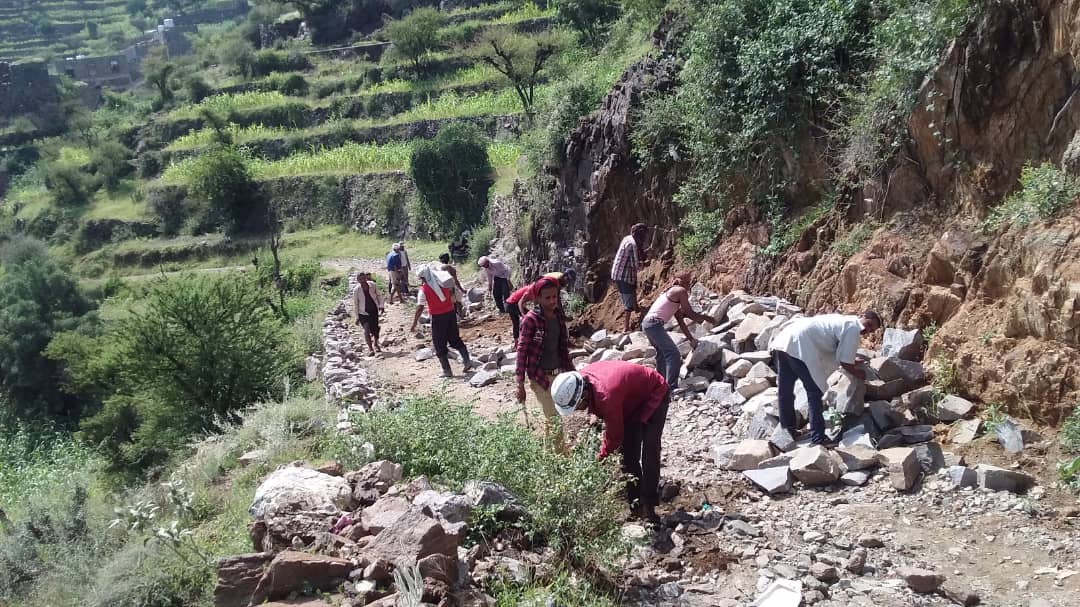Roads make a crucial contribution to economic development and growth and bring important social benefits. They are of vital importance to make a nation grow and develop. In addition, providing access to employment, society, health and education services makes road networks crucial in fighting against poverty. Roads open up more areas and stimulate economic and social development. Therefore, road infrastructure is the most important public asset of all.
Due to prevailing weak capacity, in most areas in the Yemeni countryside residents can barely build more than one school to serve many village students. Rural communities in Yemen lack basic amenities for a decent life as one of such inevitable social amenities is the lack of educational facilities. Students in Harf Alamor village of Hyfan district- Taiz governorate are forced to walk half an hour to reach the only school in the sub-district which exposes them to many risks due to the treacherous roads – particularly on rainy days which make it even harder for students to attend school and they have to miss important classes.
Wadhah is a 35-year-old father to five children. “It is very hard to keep repeatedly witnessing tragic incidents because of the road. I have an 8-year-old daughter, Shada, who has to wake up early morning, walk all the way to sub-district, so she can reach the school on time. One day, as she was walking through the rugged roads of the village, she fell off and broke both arms. I thought about forcing her to drop out of school for her own safety,” Wadhah explains, “When my children go to school, I keep praying that they arrive safely. I don’t want to experience any horrible incidents.”
Harf Alamor village of Hayfan district is one of the poorest areas in Taiz governorate. For many years, locals had no choice but to transport food and essential items by donkey, on their own backs, or by motorbike if possible. The countryside is far from the city which makes going out to the city very difficult. “Due to rough roads which cause many accidents, residents are forced to travel through the valley and it takes three hours to go out from the village. In rainy days, the valley is full with water which makes it so dangerous,” explains Wadhah.
The road in Harf Alamor is extremely hard to navigate, so people are unable to access public services. The price of food has doubled and most residents have lost their sources of income. It is also hard to access the nearest health facilities, particularly for women. The nearest health facility is far from the village. People are forced to carry the patient in a coffin or on their backs. The roads have caused great hardship for the entire residents and have led to significant loss of life. “Years ago, one pregnant woman tragically died on the way to the clinic. Her family was very eager to receive a new arrival. However, sadly, they had to hear news of the loss of the mother and her infant before reaching the health center,” says Wadhah.
CARE intervened in Taiz governorate with a Food Assistance for Assets (FFA) project to address immediate food needs through Cash for Work. The project improves long-term food security and resilience.



